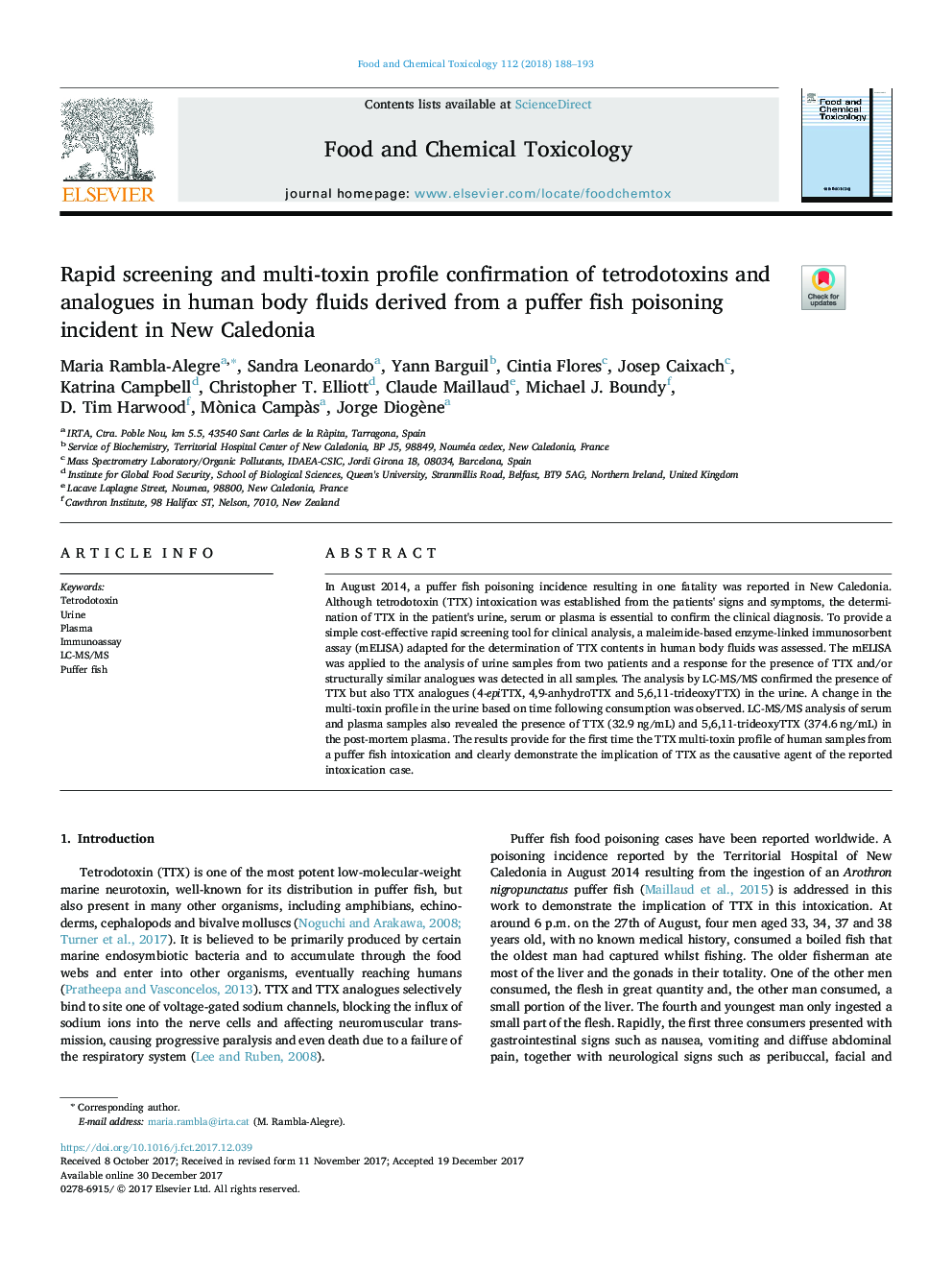| Article ID | Journal | Published Year | Pages | File Type |
|---|---|---|---|---|
| 8548285 | Food and Chemical Toxicology | 2018 | 6 Pages |
Abstract
In August 2014, a puffer fish poisoning incidence resulting in one fatality was reported in New Caledonia. Although tetrodotoxin (TTX) intoxication was established from the patients' signs and symptoms, the determination of TTX in the patient's urine, serum or plasma is essential to confirm the clinical diagnosis. To provide a simple cost-effective rapid screening tool for clinical analysis, a maleimide-based enzyme-linked immunosorbent assay (mELISA) adapted for the determination of TTX contents in human body fluids was assessed. The mELISA was applied to the analysis of urine samples from two patients and a response for the presence of TTX and/or structurally similar analogues was detected in all samples. The analysis by LC-MS/MS confirmed the presence of TTX but also TTX analogues (4-epiTTX, 4,9-anhydroTTX and 5,6,11-trideoxyTTX) in the urine. A change in the multi-toxin profile in the urine based on time following consumption was observed. LC-MS/MS analysis of serum and plasma samples also revealed the presence of TTX (32.9â¯ng/mL) and 5,6,11-trideoxyTTX (374.6â¯ng/mL) in the post-mortem plasma. The results provide for the first time the TTX multi-toxin profile of human samples from a puffer fish intoxication and clearly demonstrate the implication of TTX as the causative agent of the reported intoxication case.
Related Topics
Life Sciences
Agricultural and Biological Sciences
Food Science
Authors
Maria Rambla-Alegre, Sandra Leonardo, Yann Barguil, Cintia Flores, Josep Caixach, Katrina Campbell, Christopher T. Elliott, Claude Maillaud, Michael J. Boundy, D. Tim Harwood, Mònica Campà s, Jorge Diogène,
